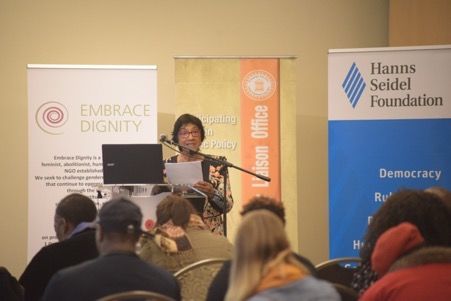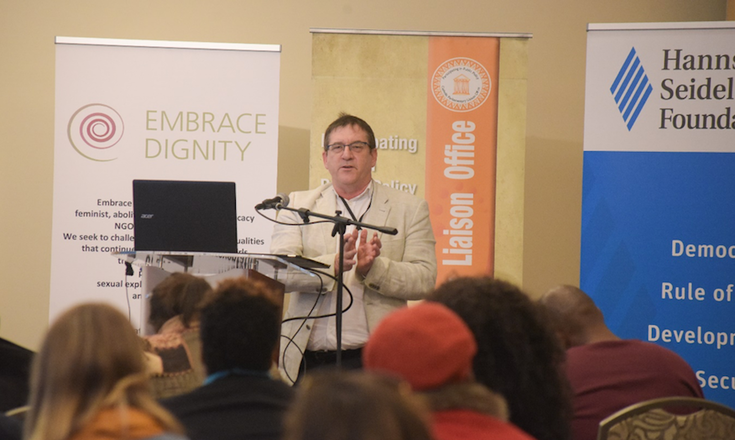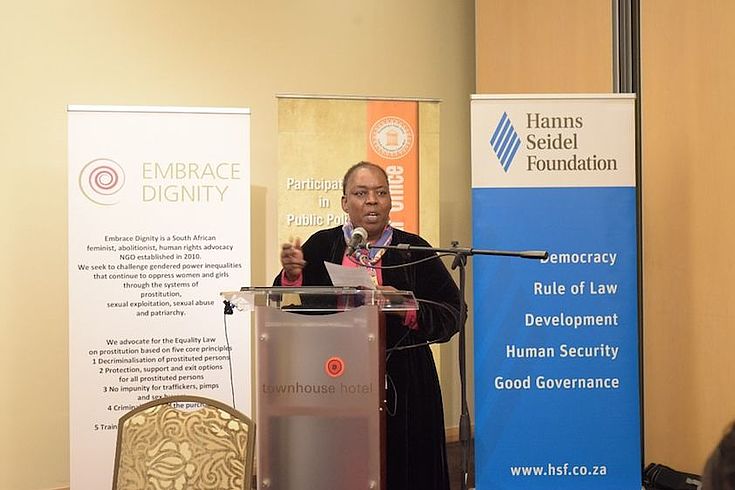Public Roundtable Discussion in Cape Town
"Prostitution/Sex Work: Is it work and is it a choice?"

Former UN High Commissioner for Human Rights Judge Navanethem Pillay
CPLO
Great panel of highly respected speakers
Embrace Dignity, a well-known South African NGO, the Catholic Parliamentary Liaison Office (CPLO) and the Hanns Seidel Foundation recently held a public Roundtable Discussion in Cape Town to debate the topic “Prostitution/Sex Work: Is it work and is it a choice?”. We could welcome the former UN High Commissioner for Human Rights, Judge Navanethem Pillay, and the Deputy Minister of Justice and Constitutional Development, Mr John Jeffery, as speakers on the panel, as well as Ms Samantha Ferrell-Schweppenstedde, Programme Officer of the international women’s rights organisation Equality Now.

Deputy Minister of Justice and Constitutional Development John Jeffery
CPLO
Human rights and legislation
The speakers agreed with the respondents, Ms Kholi Buthelezi of SISONKE (a movement based within SWEAT) and Mickey Meji, founder of KWANELE (a movement of survivors of prostitution) that prostitution/sex work is not a moral but a human rights and gender issue. Prostitutes or sex-workers, whichever term one prefers, need to be protected by law. The question remains which approach is best for South Africa: full de-criminalisation or the Nordic Model. This aspect was one of the focus areas of the Question and Answer session and the debate with the audience which was moderated by Bernedette Muthien, founder and director of the NGO Engender.

Embrace Dignity Director Nozizwe Madlala-Routledge
CPLO
Different models and a need for further engagements
Under the so-called ‘Nordic Model’, which was introduced via legislation in Sweden in 1999 and has since been implemented in a range of other countries including Norway, Iceland, France and Canada, the buyers of sexual services are targeted by the law, instead of the prostitutes/sex workers. In these countries, the Nordic Model has since become an important instrument to prevent and combat human trafficking. The lively discussion showed that many of the participants see a need for further engagement of government and law makers with all stakeholders, including experts, representatives of civil society, communities, the Police Service and representatives of sex workers, to develop a legal framework that will do justice to the situation on the ground in South Africa.
